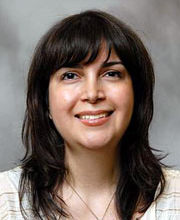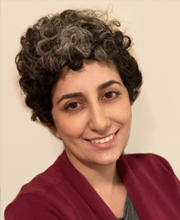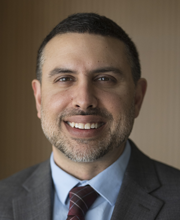Research & Team

Melena Bellin
Dr. Melena Bellin is a tenured Professor in Pediatric Endocrinology. Her research focuses include type 1 diabetes, cell therapy for diabetes, and the interaction between exocrine pancreas disease and diabetes (including type 1 diabetes). In her work on cell therapy for type 1 diabetes, she leads clinical trials of islet cell transplant therapy, including those using human cadaveric donor islets and islets manufactured from stem cells. She has reported cases of type 1 diabetes in the setting of recurrent acute and chronic pancreatitis, and Co-Chairs the NIH Type 1 Diabetes Acute Pancreatitis consortium to better study the interactions between the exocrine and endocrine pancreas including the immunologic environment in pancreatitis and how this may increase risk for islet autoimmunity.

Bryce Binstadt
Dr. Binstadt is a physician scientist and pediatric rheumatologist. His lab studies autoimmune rheumatic diseases, using both animal models and human subjects. His group is particularly interested in understanding why patients with diseases such as rheumatoid arthritis, systemic lupus erythematosus, and antiphospholipid/anticardiolipin antibodies have an increased risk of cardiovascular diseases (including atherosclerosis, heart attack, stroke, and cardiac valve inflammation). His laboratory has pioneered a mouse model of co-existing autoimmune arthritis and cardiac valve inflammation, allowing in-depth exploration of the mechanisms and pathways linking rheumatic diseases to their cardiovascular complications. Deeper understanding of these pathways will pave the way for developing more targeted treatments for patients.

Parastoo Fazeli

Brian Fife

Tanya Freedman
Relevant areas:
- Rheumatoid Arthritis
- Lupus
Immune-cell responses are triggered by complex networks of signaling pathways that intersect and feed back for higher-order regulation. The effectiveness of this regulatory control is the key difference between an appropriate antimicrobial immune response and the chronic inflammation in autoimmune diseases such as lupus and inflammatory arthritis (e.g., RA and JIA). We study how immune cells discriminate between different types of extracellular molecules to promote appropriate responses, and how inflammation becomes dysregulated. Identifying the mechanisms driving these dysfunctional cell behaviors will help us identify key events or proteins that may be therapeutically modulated to treat patients with autoimmune disease.

Kris Hogquist
The Hogquist lab seeks to understand how T cells learn to avoid and prevent autoimmunity during their development in the thymus. Their research has defined fundamental principles and mechanism of thymus biology. Our overarching goal is to develop thymus-based therapies for autoimmune diseases, including myers he is gravies, type I diabetes, and Lupus.

Sahar Lotfi-Emran
Dr. Lotfi-Emran's research lies at the intersection of infection and autoimmune disease through the lens of tissue specific immune dysregulation. Her research currently focuses on the basic post-infection immunologic mechanisms that lead to development and flares of inflammatory arthritis. Key projects include (1) demonstration that CD8+ T cells migrate to joints during infection where a subset establish residence and do not leave, becoming joint specific tissue resident memory cells (TRM), (2) identify the ways in which CD8+ TRM cause joint inflammation directly and enhance autoantibody mediated joint inflammation indirectly, (3) determine why exposure to microbes increases susceptibility to autoantibody mediated inflammatory arthritis, and (4) evaluate the link between upper respiratory viral infection, microbiome changes, and flares of autoimmune arthritis.

Shawn Mahmud
I am a pediatric rheumatologist / physician scientist working to establish my own laboratory studying antigen-specific CD4+ T cell responses in humans. I have a particular interest in developing self-peptide:MHCII tetramers to study autoreactive T cells in humans. The MHCII molecule HLA-DRB1*0401 is enriched in several autoimmune diseases, including mixed connective tissue disease (MCTD). Patients with MCTD develop high titer IgG autoantibodies against a protein called U170k. I have developed tetramers to track U170k:DR4-specific CD4+ T cells in humans with MCTD and will soon be submitting an IRB application to begin a longitudinal assessment of the frequency/phenotype of U170k:DR4-specific cells in patients at the time of diagnosis, how this relates to the organ systems affected, and what happens to these self-reactive cells during disease flare and during/after therapy. I am also working to develop tetramers to study human autoimmunity with a more ubiquitous MHCII molecule, HLA-DPA1*0103/DPB1*0401 (aka DP4).

Jerry Molitor
Our multidisciplinary scleroderma center continues to work on a variety of research endeavors. We are now part of the nationwide scleroderma research foundation- funded CONQUER registry and repository, which has enrolled over 700 systemic sclerosis patients across the country. CONQUER will allow us to better understand the frequency and natural history of the multiple manifestations of systemic sclerosis, and the effects of therapies on the disease, and will give our local investigators the ability to ask focused research questions using this carefully curated large database.
We also continue to participate in a number of clinical trials. Locally, we are working with members of the hematology oncology and transplant groups in the development of next generation stem cell transplant approaches and cellular therapies for Systemic Sclerosis including CAR-T cells, regulatory T-cell infusions, and engineered NK T cells and monocytes/macrophage lineage cells, in collaboration with Drs. Jeff Miller, Bruce Blazer and their colleagues and University of Minnesota technology transfer facilitated small local start-up companies.

Antoinette Moran
Dr. Moran has extensive experience in diabetes clinical research and has been continuously funded since 1987 by the NIH, foundations and industry. She has more than 200 peer-reviewed publications. She is currently funded for the following projects: 1) She has been a PI and Steering Committee member for the NIH-funded TrialNet Consortium since 2004, and has helped develop, conduct, and lead several multicenter trials to prevent or ameliorate new onset TID. Currently, she is the protocol chair of a study just submitted to the FDA to use teplizumab to delay diabetes in very young children (age 2-7). She leads the Clinical Monitoring Group for TrialNet. 2) She also participates in NIH-funded Immune Tolerance Network Protocols, which currently include EXTEND, TIDES and the soon-to-be launched DESIGNATE. 3) She led the investigator-initiated CLVer study, a JDRF-funded RCT to determine whether verapamil and/or intensive glucose management started shortly after T1D diagnosis preserves beta cell function---the positive results of this study were recently published in two JAMA articles and she is currently leading the extension study. 4) She has an R01 to study the use of CGM technology in Ugandan youth with T1D. 5) She is a Site PI for an industry study with Provention Bio

Daniel Mueller

Erik Peterson

Justin Spanier

Vaiva Vezys
I am interested in how and why your body decides to attack itself and induce autoimmunity. My particular focus is on tolerance (non-reactivity) to intestinal self-proteins and why breakdown of tolerance can lead to intestinal autoimmune diseases, such as Crohn’s disease and ulcerative colitis, collectively known as inflammatory bowel disease (IBD). My lab performs pre-clinical research to understand the basic mechanisms inducing tolerance, the changes that bring on tissue damage and therapies that can interrupt disease progression. We are also interested in using pre-clinical models to understand the mechanisms behind the hygiene hypothesis, which is the observation that living in “cleaner”, industrialized countries increases the incidence of many different autoimmune diseases.